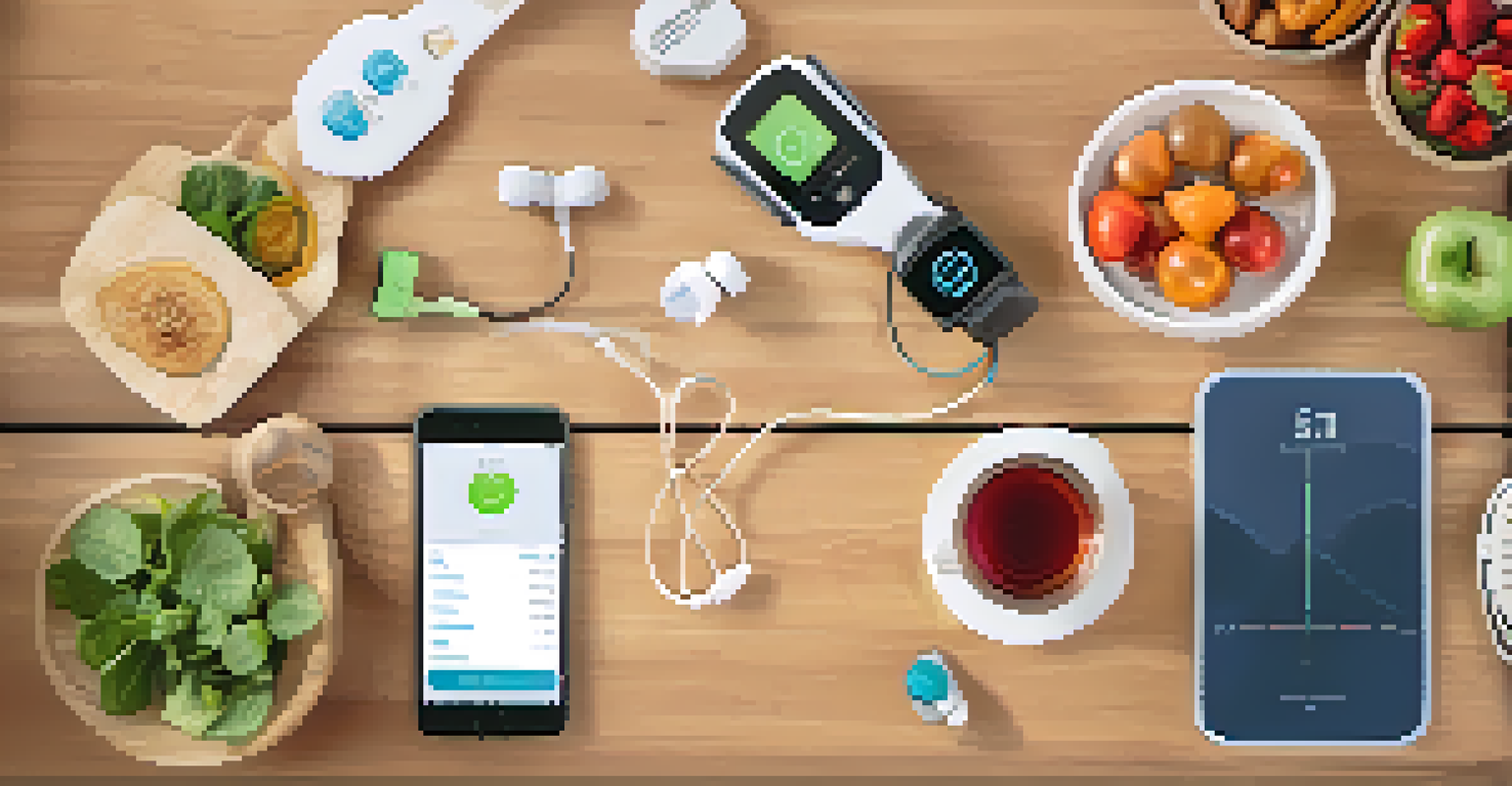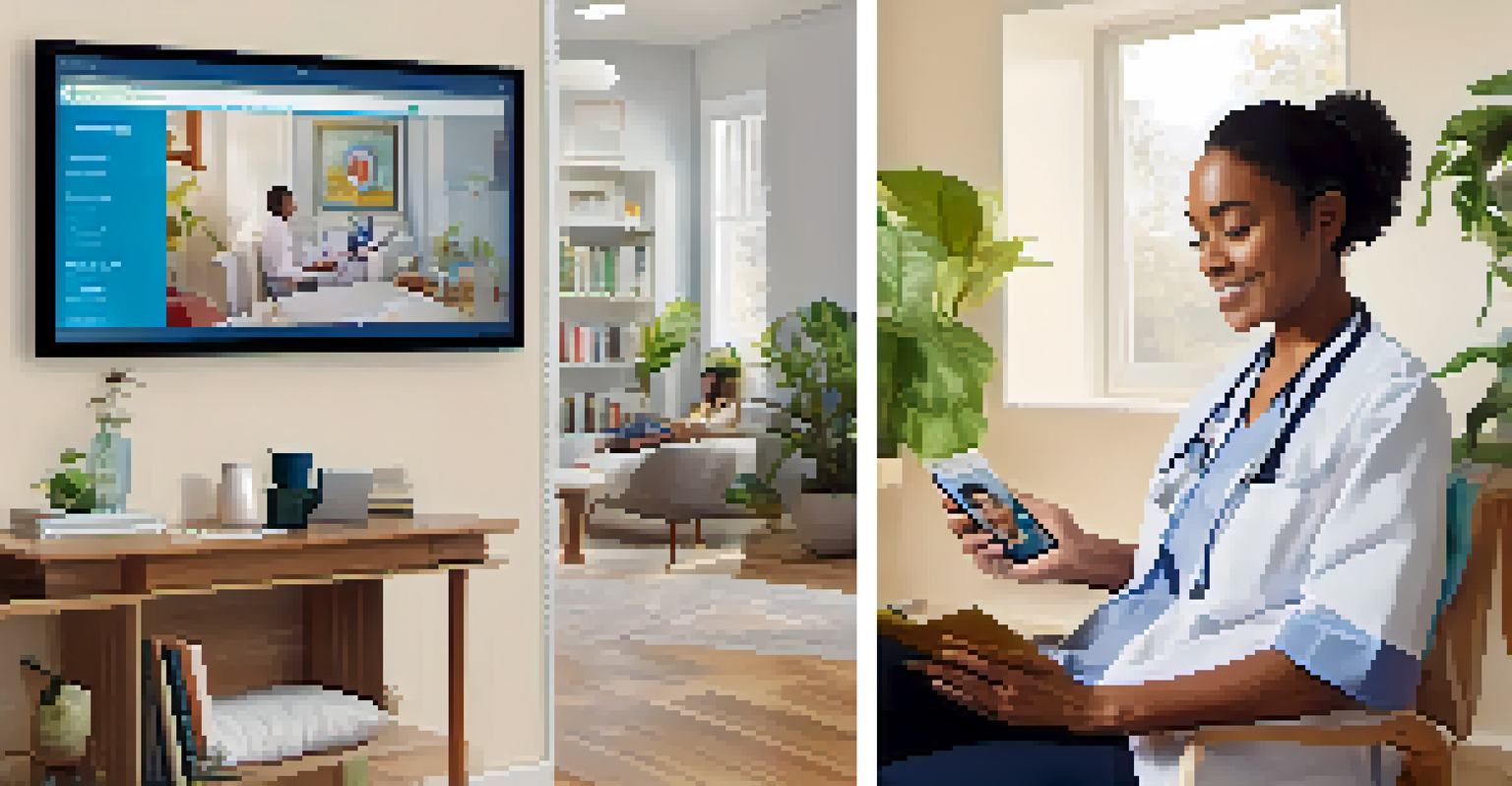Mobile Health Apps: Empowering Patients Through Technology

The Rise of Mobile Health Apps in Healthcare
Mobile health apps have seen a tremendous rise in popularity, especially in recent years. With smartphones now an integral part of daily life, patients are turning to these apps for health management and information. This shift not only empowers individuals but also facilitates a more personalized approach to healthcare.
The greatest medicine of all is to teach people how not to need it.
From tracking fitness goals to managing chronic conditions, there’s an app for nearly every health need. These tools offer users immediate access to health data and resources right at their fingertips. As technology continues to evolve, the potential for mobile health apps to transform patient care grows exponentially.
Additionally, the COVID-19 pandemic accelerated the adoption of telehealth services, highlighting the importance of mobile health apps. Patients are now more accustomed to using technology for consultations, prescriptions, and health monitoring, making this a vital component of modern healthcare.
How Mobile Health Apps Enhance Patient Engagement
One of the most significant benefits of mobile health apps is their ability to boost patient engagement. By providing real-time data and reminders, these apps encourage patients to take an active role in their health journey. This shift from passive to active involvement can lead to better health outcomes.

For instance, apps that send medication reminders can help patients adhere to their prescriptions, reducing the risk of complications. Similarly, fitness apps that track activity levels can motivate users to maintain a healthier lifestyle. When patients feel empowered to manage their health, they are more likely to stay engaged with their care plans.
Mobile Apps Empower Health Management
Mobile health apps enhance patient engagement by providing real-time data and reminders, encouraging active participation in health management.
Moreover, many mobile health apps offer community features that connect users with others facing similar health challenges. This sense of community can enhance motivation and provide emotional support, making the journey toward better health feel less isolating.
Tracking Health Metrics with Mobile Apps
Mobile health apps allow users to track various health metrics, providing insights into their overall well-being. From monitoring heart rates to logging food intake, these apps serve as powerful tools for self-assessment. Users can visualize their progress over time, which can be incredibly motivating.
Technology is best when it brings people together.
For example, diabetes management apps help users log their blood sugar levels and carbohydrate intake, facilitating informed decisions about their diet and medication. This data can also be shared with healthcare providers, fostering more effective communication and personalized care.
The ability to track health metrics not only promotes accountability but also encourages users to set and achieve specific health goals. This data-driven approach to health management is a game-changer, as it empowers patients to make informed choices.
Personalizing Health Care Through Technology
Personalization is key in today’s healthcare landscape, and mobile health apps contribute significantly to this trend. By collecting user data, these apps can offer tailored recommendations and resources. This personalized approach helps patients feel understood and supported in their health journeys.
For instance, some apps analyze users’ activity levels and suggest customized workout plans that fit their lifestyles. Others provide dietary recommendations based on individual health goals or medical conditions. This level of customization can lead to more effective health management strategies.
Telehealth Transforms Patient Access
The integration of telehealth in mobile health apps allows patients to receive medical advice conveniently, improving access to healthcare services.
As technology advances, the potential for further personalization in mobile health apps grows. Future developments may involve artificial intelligence that learns from user behavior, allowing for even more precise health recommendations tailored to individual needs.
The Role of Telehealth in Mobile Health Apps
Telehealth integration within mobile health apps has revolutionized how patients access care. With the ability to consult healthcare providers via video calls or messaging, patients can receive medical advice without needing to travel. This convenience is especially beneficial for those with mobility issues or living in remote areas.
Telehealth features in these apps also allow for quick follow-ups and ongoing communication, which can enhance the overall patient experience. Patients can easily share their health data and receive timely feedback from their providers, ensuring that care is both proactive and responsive.
As telehealth continues to gain traction, its integration into mobile health apps will likely become even more sophisticated. This evolution will further empower patients, making healthcare more accessible and efficient than ever before.
Challenges and Concerns with Mobile Health Apps
While mobile health apps offer numerous benefits, they also come with challenges that users must navigate. One significant concern is data privacy, as users share sensitive health information through these platforms. It's crucial for patients to choose apps that prioritize security and comply with regulations like HIPAA.
Additionally, the overwhelming number of apps available can make it difficult for users to choose the right one for their needs. Some apps may lack scientific backing, leading to misinformation or ineffective health strategies. Patients should seek apps that are evidence-based and have positive reviews from credible sources.
Personalization Enhances Care Strategies
Mobile health apps use user data to offer personalized health recommendations, fostering more effective and tailored health management.
Lastly, technology can sometimes create barriers for older adults or those less familiar with digital tools. Developers must strive to create user-friendly interfaces that cater to all demographics, ensuring that everyone can benefit from mobile health apps.
The Future of Mobile Health Apps in Patient Care
Looking ahead, the future of mobile health apps in patient care is bright and full of potential. As technology continues to advance, we can expect more innovative features that enhance user experience and health outcomes. From virtual reality for therapy sessions to AI-driven health insights, the possibilities are endless.
Moreover, increased collaboration between tech companies and healthcare providers will likely lead to more robust and effective applications. By working together, these entities can create apps that not only meet patient needs but also integrate seamlessly into existing healthcare systems.

Ultimately, mobile health apps are set to become an essential part of patient care, empowering individuals to take control of their health. As we embrace this digital transformation, we can look forward to a future where technology and healthcare work hand-in-hand for better health outcomes.